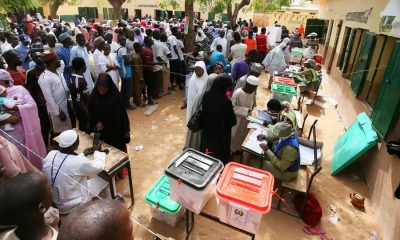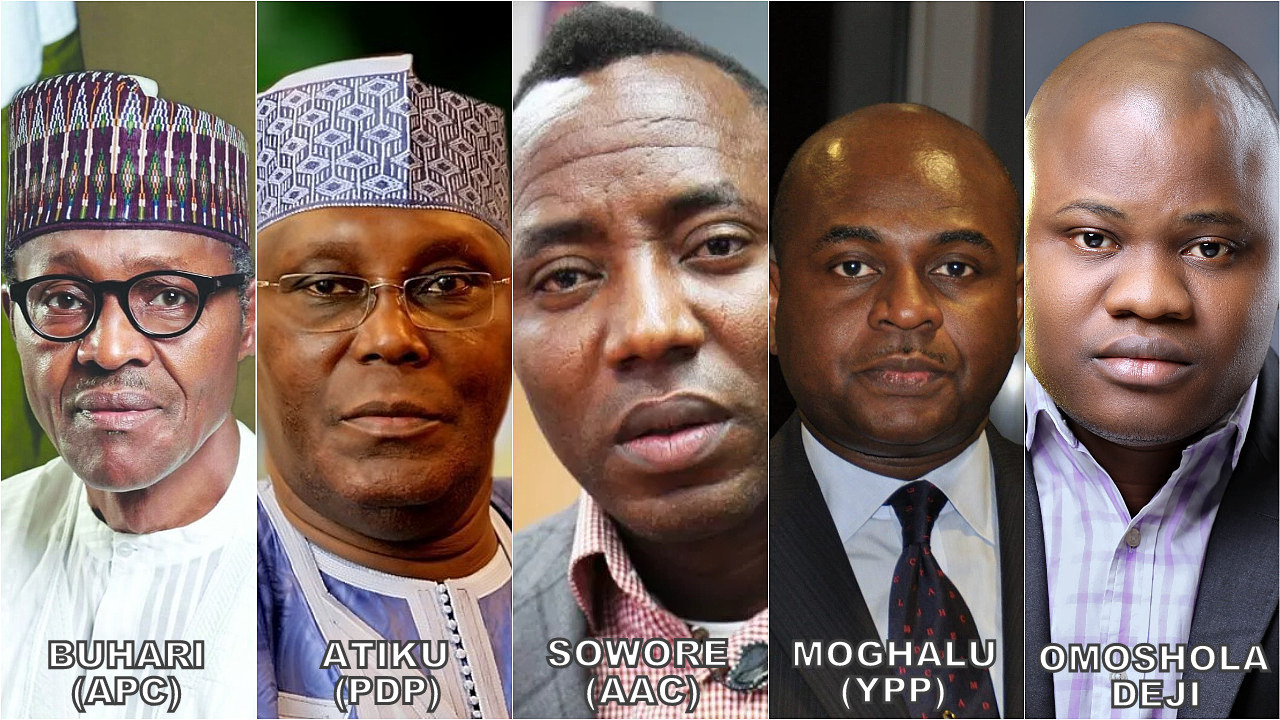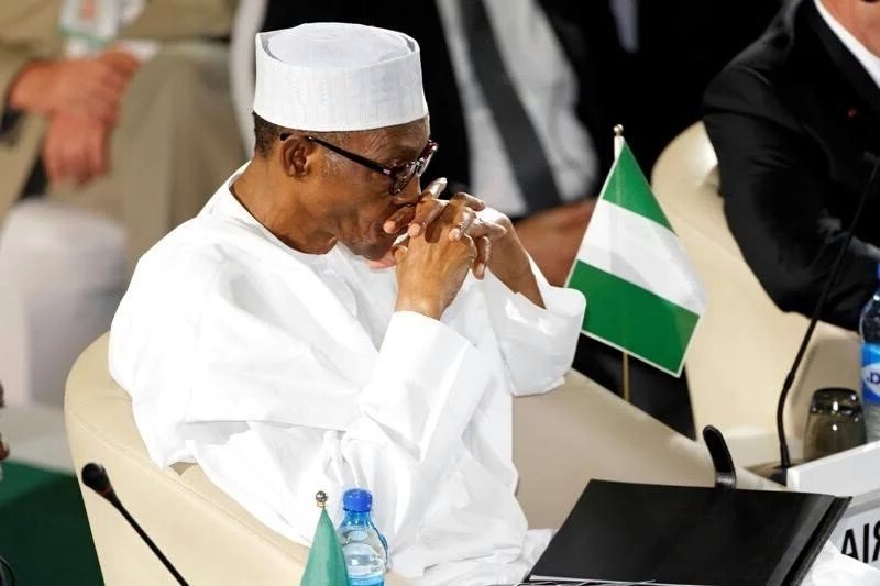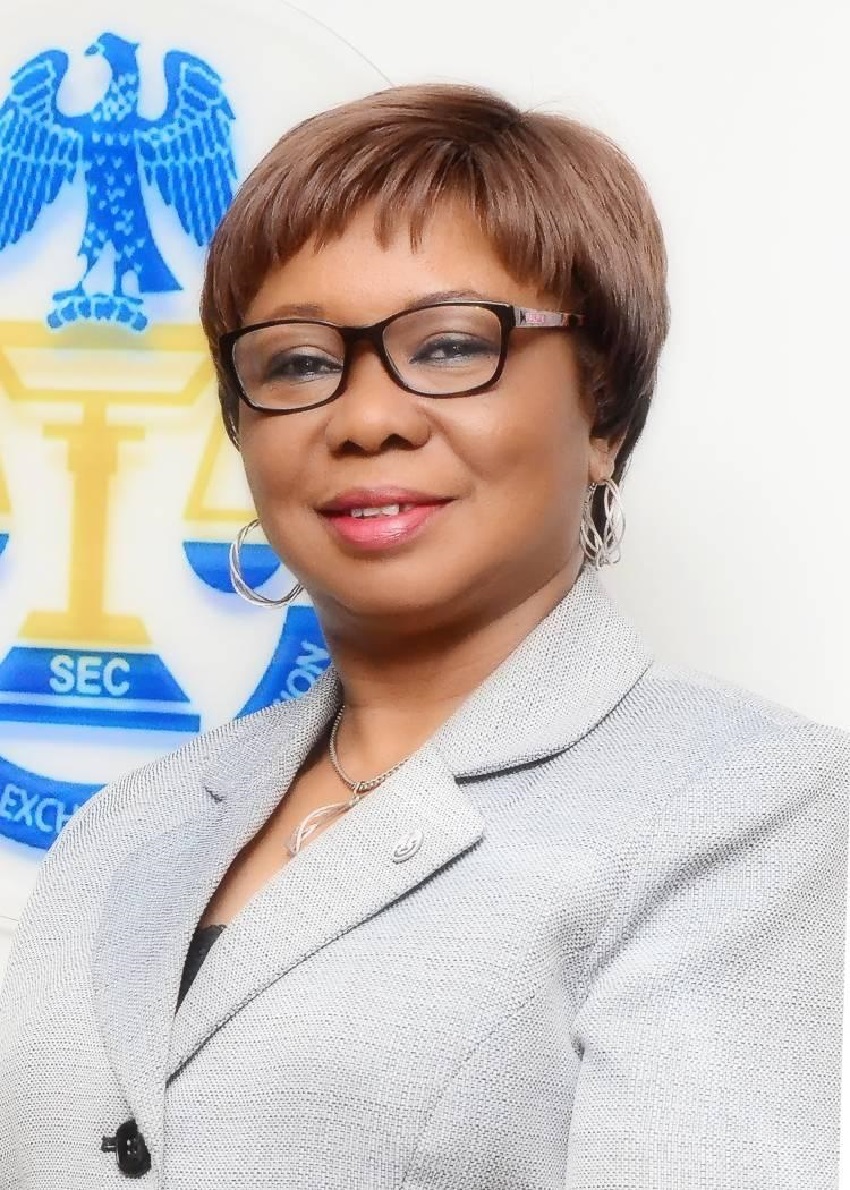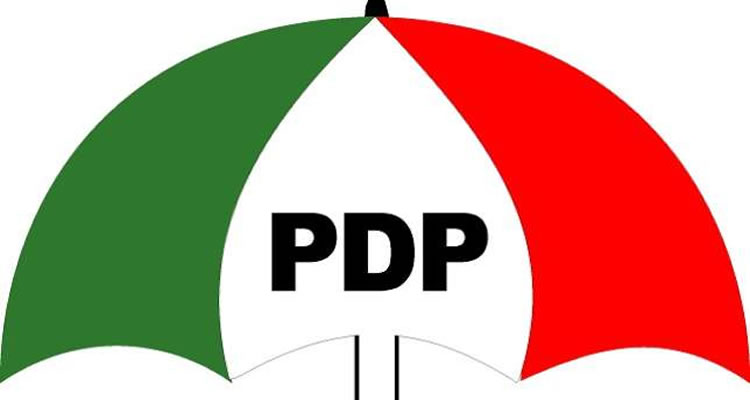Feature/OPED
2019 Presidential Election: Assessing Possibility of Electoral Fraud
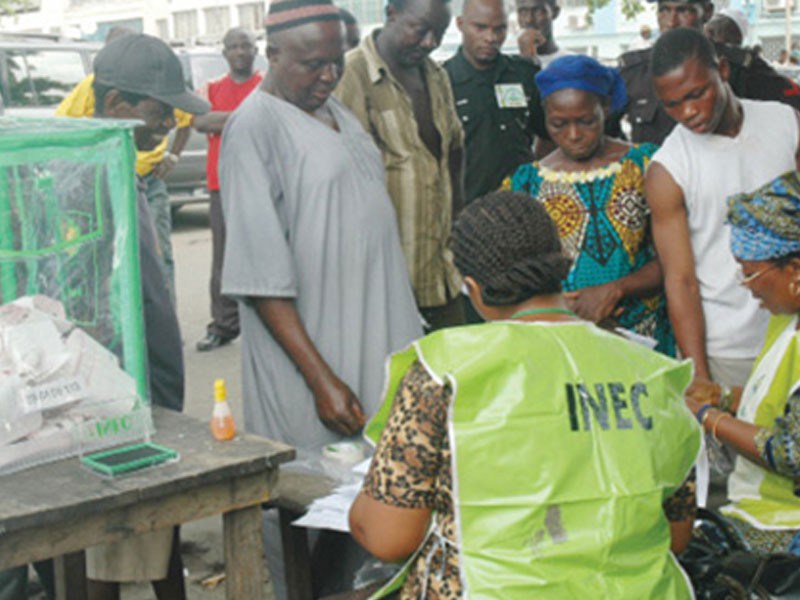
By Omoshola Deji
After about thirty years of stern military rule, Nigeria re-embraced democracy in 1999 and five elections have produced Presidents Olusegun Obasanjo (two terms), Umaru Yar’Adua, Goodluck Jonathan and the incumbent Muhammadu Buhari.
The year 2019 ushers in an opportunity for Nigerians to elect another president or return Buhari. Buhari has promised a free and fair election, but the opposition parties and some observers cast doubts on his commitment to ensuring transparency in an election he is contesting.
This piece examines the allegations and influence of nepotism on the credibility of the electoral process, as well as the effects of underage voting and vote-buying on election results.
Nigerians are criticizing President Buhari’s appointments as nepotistic, especially his choice of the heads of security agencies and the electoral commission. The prevailing argument that this is a clever style of managing the electoral process in his favour steers us into an appraisal of such appointments by the previous governments. Ensuring the successful conduct of elections in Nigeria involves the collaborative effort of several agencies – including the Civil Defense, Army and State Security Service – but Police and INEC are the most crucial. INEC conduct elections and police leads the provision of security. The appraisal thus focuses on these two outfits.
Individuals referenced are classified based on their states of origin and geopolitical zones as currently defined in Nigeria. The zones are abbreviated thus: South-West (SW), South-East (SE), South-South (SS) North-West (NW), North-Central (NC), and the North-East (NE).
Is President Buhari’s appointment of the 2019 election handlers nepotistic? In the first republic (1963-1966), President Nnamdi Azikwe, a native of Anambra State (SE), appointed Louis Edet from Cross River State (SS) as the Inspector General of Police (IGP). Eyo Ita Esua from Cross River State (SS) was appointed the head of the Federal Electoral Commission. You would note that the president and the heads of FEC and police were not from the same geopolitical zone. The military seized power in 1966.
To conduct the election that’ll usher in the second republic in 1979, then General Olusegun Obasanjo from Ogun State (SW) appointed Chief Michael Ani from Cross River State (SS) as Chairman of the Federal Electoral Commission. Muhammadu Dikko Yusufu from Katsina State (NW) was appointed the IGP. The head-of-state and the heads of FEC and police were not from the same geopolitical zone. Obasanjo transferred power to Shehu Shagari, but (Nigeria’s incumbent president) then General Muhammadu Buhari seized power via a military coup in 1983. General Ibrahim Babangida later ousted him in 1985.
After being pressurized by a national campaign for democratic rule, Babangida promised to conduct elections and hand over power in 1993 – the third republic. Babangida, a native of Niger State (NC) appointed Professor Humprey Nwosu, an indigene of Anambra State (SE), as the Chairman of the National Electoral Commission. Aliyu Atta from Adamawa State (NE) was appointed the IGP. Please note that the military-president and the heads of NEC and police were not from the same geopolitical zone.
To conduct the election that brought on the (Obasanjo led 1999-2003) fourth republic, General Abdusalami Abubakar from Niger State (NC) appointed Justice Ephraim Akpata from Edo State (SS) as the Chairman of the Independent National Electoral Commission (INEC). Ibrahim Commassie, an indigene of Katsina State (NW), was appointed the IGP. Again, General Abubakar and the heads of INEC and police were not from the same geopolitical zone.
Ex-President Obasanjo’s second term was the fifth republic (2003-2007). The election that earned him the term was handled by then INEC Chairman Abel Guobadia (Edo, SS) and IGP Mustafa Balogun (Osun, SW). Appointments of the two crucial election handlers were not only allotted to the South, the police IG was from Obansanjo’s geopolitical zone, the SW.
This is not the case now in Buhari’s government. Buhari, a native of Katsina State (NW) appointed Mamood Yakubu (Bauchi, NE) and Idris Kpotun (Niger, NC) as INEC and police heads.
Although Buhari dispensed the appointments to northerners, he and the two appointees are from separate northern geopolitical zones. In essence, Obasanjo’s appointment of INEC and police heads when he was seeking re-election in 2003 is even more sectional than what we have now.
It is appalling that facts about an issue that could diminish Buhari’s votes, especially in the South, stay unutilized. Why is the work of presidential aides being left for independent analysts in an election season? Buhari’s aides are either unmindful of the harm negative public perceptions could do to their principal or they are simply overconfident he would win. But on a second look, why was Obasanjo’s appointment not criticized? Why are people afraid that Buhari’s appointments could breed electoral fraud, but weren’t troubled during Obasanjo’s rule?
The issue is best explained empirically. When Ex-President Goodluck Jonathan increased petrol price from 67 to 87 Naira, people protested because his government was widely rated as corrupt. They didn’t trust him. But when President Buhari increased petrol price from 87 to 145 Naira, the protest was very minimal because Nigerians see him as a non-corrupt person. Trust is the keyword here.
People never protested against Obasanjo’s more sectional appointment of INEC and police heads because they didn’t see him as nepotistic and chauvinistic. His other key appointments (of national security adviser and heads of civil defense, army, the state security service etc.) reflected Nigeria’s ethnic pluralism. That cannot be said of Buhari. He is more sectional than national.
The heads of all the above mentioned agencies are from the North. SSS is currently being led by Mathew Seiyefa (Bayelsa, SS) due to dismissal of Lawal Daura (Katsina, NW) and there are reports of ongoing moves to replace him with a northerner. Nigerians are pessimistic about getting a credible election in 2019 as the influence of these outfits’ activities on election results cannot be undermined. Does nepotism breed electoral fraud? We must resist the appetite to digress. I’ll dissect the issue after concluding the ethnic and geopolitical appraisal of individuals appointed to handle the conduct of past national elections.
The election that ushered in the (late Umaru Yar’Adua led) sixth republic was conducted by the Obasanjo administration. The poll was handled by then INEC Chairman, Professor Maurice Iwu (Imo, SE) and IGP Sunday Ehindero (Ondo, SW). In this case, Obasanjo’s appointment of non-northerners can be argued as ensuring fairness and transparency since the election was mainly a contest between northern candidates – late Umaru Yar’Adua for the PDP, M. Buhari for the defunct ANPP, and Atiku Abubakar for the defunct AC.
Yar’Adua’s death left a vacuum in government. His vice, Goodluck Jonathan (Bayelsa, SS), was sworn in on May 5, 2010 to complete the four-year tenure of the sixth republic (2007-2011). As the term ends, Jonathan turned down the northern oligarchy’s request to takeover. He contested, won and governed Nigeria in the seventh republic (2011-2015). The election that returned him elected was handled by the northerners he appointed. Prof. Attahiru Jega (Kebbi, NW) was the INEC Chairman and Hafiz Ringim (Jigawa, NE) was the IGP. Unlike the Buhari administration, Jonathan was mindful of Nigeria’s ethnic sensitivity and majority of his appointment favoured other ethnic groups, especially the northern lived Hausa-Fulani. He retained Jega as INEC Chairman and appointed Suleiman Abba (Jigawa, NE) as IGP for the 2015 elections.
Jonathan lost the race to rule Nigeria in the eighth republic (2015-2019) to incumbent President Buhari. He conceded defeat. Oppositely, when Jonathan floored Buhari in the 2011 presidential election, the latter’s supporters violently protested, killed and destroyed properties in the north. Would the 2011 post-election violence not have been more devastating if the election handlers and service chiefs were Southerners from Jonathan’s ethnic extraction? Ensuring appointments into sensitive positions are fairly distributed remains one of the most effective means of maintaining public trust, dousing inter-ethnic bigotry and erasing agitation for succession in a plural state like Nigeria. Does nepotism breed electoral fraud? How will nepotism, vote-buying and underage voting affect the outcome of the 2019 presidential election?
In the history of Nigeria, Buhari is the first ruler to appoint an INEC Chairman from his region, the NW. He appointed his supposed relation, Mrs Amina Zakari, as the acting INEC Chairman in June 2015. After several criticisms, Prof Mahmood Yakubu was appointed to replace her as the substantive chairman in October 2015. The relationship between Zakari and Yakubu is so strong that it has the tendency to influence the outcome of the elections in favour of Buhari. The nepotism and sectionalism in Buhari’s government is also present in INEC’s leadership.
Vote buying and underage voting are electoral crimes, but INEC and police have been unable to stem the tide. The two agencies only condemn. They are unwilling to prosecute electoral offenders. The northern region has the highest case of underage voting, while vote-buying has recently gained prominence across the country.
In all fairness, affection for Buhari can’t be argued as the sole reason for underage registration and voting in the north. The north has always had a substantial registration of underage voters before Buhari became president. Nonetheless, his re-election bid has led to an increase in such for political gain. In 2019, (regular and) underage voting would be a huge gain for Buhari in his northern stronghold.
In other regions, Buhari currently have an above-average support in the SW, fast-rising support in the SE, and a below-average support in the SS. Vote buying could easily cover up for his shortfalls in these southern areas. Electoral fraud is bound to occur on a massive scale in the 2019 elections. APC and Buhari would profit more from it than the opposition because they are in control of the nation’s finance and force. With the nepotistic arrangement in place and the forces’ top-down chain of command, all it takes the force heads is to post their loyalists to key states in order to allow the Buharists operate unchecked.
Politics is the switch that controls police operations under IGP Idris Kpotum. Sadly, elections in Nigeria are often marred by so much irregularity that it is quite easy for the umpire and security agencies to manipulate the results. Then again, the force heads have been so political that they have a reason to compromise in order to avoid their imminent sack, if the opposition wins. Buhari is no doubt a strong candidate, but the election is being technically managed in such a way that it would be impossible for him to lose.
INEC and the security agencies operations largely determine the outcome of elections in Nigeria. The heads periodically issue obnoxious orders to their subordinates and questioning or disobeying such orders is treated as an affront, insubordination and disloyalty. The punishment for such is non-promotion, unfavourable transfers, and sometimes death. The boss’ mood dictates the actions of the subordinates, and his wish, whether legal or not, becomes the institution’s mission, especially during elections. Making chauvinistic appointments into agencies operating such a closed system – in a nation where people are more committed to their ethnic groups than to the Nigerian state – is unfortunate for Nigeria’s democracy and a recipe for electoral fraud.
All that concern a presidential election in a plural nation should not be regional. In a polity where the instruments of the state are often used for political gains, a presidential election handled by heads of INEC and security agencies who are northerners, with an incumbent northern candidate running, is beyond doubts programmed not be free, fair, credible or transparent. Such election grievously puts the non-northern candidates in an extremely disadvantaged position. Ethnic affiliation controls emotions in Nigerian elections. Ethnic affection inspired the annulment of the 1993 presidential election won by Moshood Abiola. Babangida wouldn’t have annulled the election if Bashir Tofa (his fellow northerner) won.
Political interests dictate government policies in Nigeria. The Supreme Court ruled that using electronic card readers for voter accreditation is not permissible under the Nigerian electoral laws. The national assembly passed a bill that’ll permit the use of electronic card readers for the 2019 elections, but Buhari declined assent twice. The implication of this is that INEC would have to use the manual means of voter accreditation in 2019 and this would lead to massive electoral fraud.
Buhari must live up to the responsibility of ensuring Nigerians get a free, fair and credible election, and accepting the outcome in good faith if defeated. No matter how hard he tries to be transparent, his nepotistic and chauvinistic conducts, the inability to manage personal interest, autocracy, and hounding the opposition could drive Nigeria’s democracy rearward.
Omoshola Deji is a political and public affairs analyst. He wrote in via mo******@***oo.com
Feature/OPED
How Christians Can Stay Connected to Their Faith During This Lenten Period

It’s that time of year again, when Christians come together in fasting and prayer. Whether observing the traditional Lent or entering a focused period of reflection, it’s a chance to connect more deeply with God, and for many, this season even sets the tone for the year ahead.
Of course, staying focused isn’t always easy. Life has a way of throwing distractions your way, a nosy neighbour, a bus driver who refuses to give you your change, or that colleague testing your patience. Keeping your peace takes intention, and turning off the noise and staying on course requires an act of devotion.
Fasting is meant to create a quiet space in your life, but if that space isn’t filled with something meaningful, old habits can creep back in. Sustaining that focus requires reinforcement beyond physical gatherings, and one way to do so is to tune in to faith-based programming to remain spiritually aligned throughout the period and beyond.
On GOtv, Christian channels such as Dove TV channel 113, Faith TV and Trace Gospel provide sermons, worship experiences and teachings that echo what is being practised in churches across the country.
From intentional conversations on Faith TV on GOtv channel 110 to true worship on Trace Gospel on channel 47, these channels provide nurturing content rooted in biblical teaching, worship, and life application. Viewers are met with inspiring sermons, reflections on scripture, and worship sessions that help form a rhythm of devotion. During fasting periods, this kind of consistent spiritual input becomes a source of encouragement, helping believers stay anchored in prayer and mindful of God’s presence throughout their daily routines.
To catch all these channels and more, simply subscribe, upgrade, or reconnect by downloading the MyGOtv App or dialling *288#. You can also stream anytime with the GOtv Stream App.
Plus, with the We Got You offer, available until 28th February 2026, subscribers automatically upgrade to the next package at no extra cost, giving you access to more channels this season.
Feature/OPED
Turning Stolen Hardware into a Data Dead-End

By Apu Pavithran
In Johannesburg, the “city of gold,” the most valuable resource being mined isn’t underground; it’s in the pockets of your employees.
With an average of 189 cellphones reported stolen daily in South Africa, Gauteng province has become the hub of a growing enterprise risk landscape.
For IT leaders across the continent, a “lost phone” is rarely a matter of a misplaced device. It is frequently the result of a coordinated “snatch and grab,” where the hardware is incidental, and corporate data is the true objective.
Industry reports show that 68% of company-owned device breaches stem from lost or stolen hardware. In this context, treating mobile security as a “nice-to-have” insurance policy is no longer an option. It must function as an operational control designed for inevitability.
In the City of Gold, Data Is the Real Prize
When a fintech agent’s device vanishes, the $300 handset cost is a rounding error. The real exposure lies in what that device represents: authorised access to enterprise systems, financial tools, customer data, and internal networks.
Attackers typically pursue one of two outcomes: a quick wipe for resale on the secondary market or, far more dangerously, a deep dive into corporate apps to extract liquid assets or sellable data.
Clearly, many organisations operate under the dangerous assumption that default manufacturer security is sufficient. In reality, a PIN or fingerprint is a flimsy barrier if a device is misconfigured or snatched while unlocked. Once an attacker gets in, they aren’t just holding a phone; they are holding the keys to copy data, reset passwords, or even access admin tools.
The risk intensifies when identity-verification systems are tied directly to the compromised device. Multi-Factor Authentication (MFA), widely regarded as a gold standard, can become a vulnerability if the authentication factor and the primary access point reside on the same compromised device. In such cases, the attacker may not just have a phone; they now have a valid digital identity.
The exposure does not end at authentication. It expands with the structure of the modern workforce.
65% of African SMEs and startups now operate distributed teams. The Bring Your Own Device (BYOD) culture has left many IT departments blind to the health of their fleet, as personal devices may be outdated or jailbroken without any easy way to know.
Device theft is not new in Africa. High-profile incidents, including stolen government hardware, reinforce a simple truth: physical loss is inevitable. The real measure of resilience is whether that loss has any residual value. You may not stop the theft. But you can eliminate the reward.
Theft Is Inevitable, Exposure is Not
If theft cannot always be prevented, systems must be designed so that stolen devices yield nothing of consequence. This shift requires structured, automated controls designed to contain risk the moment loss occurs.
Develop an Incident Response Plan (IRP)
The moment a device is reported missing, predefined actions should trigger automatically: access revocation, session termination, credential reset and remote lock or wipe.
However, such technical playbooks are only as fast as the people who trigger them. Employees must be trained as the first line of defence —not just in the use of strong PINs and biometrics, but in the critical culture of immediate reporting. In high-risk environments, containment windows are measured in minutes, not hours.
Audit and Monitor the Fleet Regularly
Control begins with visibility. Without a continuous, comprehensive audit, IT teams are left responding to incidents after damage has occurred.
Opting for tools like Endpoint Detection and Response (EDR) allows IT teams to spot subtle, suspicious activities or unusual access attempts that signal a compromised device.
Review Device Security Policies
Security controls must be enforced at the management layer, not left to user discretion. Encryption, patch updates and screen-lock policies should be mandatory across corporate devices.
In BYOD environments, ownership-aware policies are essential. Corporate data must remain governed by enterprise controls regardless of device ownership.
Decouple Identity from the Device
Legacy SMS-based authentication models introduce avoidable risk when the authentication channel resides on the compromised handset. Stronger identity models, including hardware tokens, reduce this dependency.
At the same time, native anti-theft features introduced by Apple and Google, such as behavioural theft detection and enforced security delays, add valuable defensive layers. These controls should be embedded into enterprise baselines rather than treated as optional enhancements.
When Stolen Hardware Becomes Worthless
With POPIA penalties now reaching up to R10 million or a decade of imprisonment for serious data loss offences, the Information Regulator has made one thing clear: liability is strict, and the financial fallout is absolute. Yet, a PwC survey reveals a staggering gap: only 28% of South African organisations are prioritising proactive security over reactive firefighting.
At the same time, the continent is battling a massive cybersecurity skills shortage. Enterprises simply do not have the boots on the ground to manually patch every vulnerability or chase every “lost” terminal. In this climate, the only viable path is to automate the defence of your data.
Modern mobile device management (MDM) platforms provide this automation layer.
In field operations, “where” is the first indicator of “what.” If a tablet assigned to a Cape Town district suddenly pings on a highway heading out of the city, you don’t need a notification an hour later—you need an immediate response. An effective MDM system offers geofencing capabilities, automatically triggering a remote lock when devices breach predefined zones.
On Supervised iOS and Android Enterprise devices, enforced Factory Reset Protection (FRP) ensures that even after a forced wipe, the device cannot be reactivated without organisational credentials, eliminating resale value.
For BYOD environments, we cannot ignore the fear that corporate oversight equates to a digital invasion of personal lives. However, containerization through managed Work Profiles creates a secure boundary between corporate and personal data. This enables selective wipe capabilities, removing enterprise assets without intruding on personal privacy.
When integrated with identity providers, device posture and user identity can be evaluated together through multi-condition compliance rules. Access can then be granted, restricted, or revoked based on real-time risk signals.
Platforms built around unified endpoint management and identity integration enable this model of control. At Hexnode, this convergence of device governance and identity enforcement forms the foundation of a proactive security mandate. It transforms mobile fleets from distributed risk points into centrally controlled assets.
In high-risk environments, security cannot be passive. The goal is not recovery. It is irrelevant, ensuring that once a device leaves authorised hands, it holds no data, no identity leverage, and no operational value.
Apu Pavithran is the CEO and founder of Hexnode
Feature/OPED
Daniel Koussou Highlights Self-Awareness as Key to Business Success

By Adedapo Adesanya
At a time when young entrepreneurs are reshaping global industries—including the traditionally capital-intensive oil and gas sector—Ambassador Daniel Koussou has emerged as a compelling example of how resilience, strategic foresight, and disciplined execution can transform modest beginnings into a thriving business conglomerate.
Koussou, who is the chairman of the Nigeria Chapter of the International Human Rights Observatory-Africa (IHRO-Africa), currently heads the Committee on Economic Diplomacy, Trade and Investment for the forum’s Nigeria chapter. He is one of the young entrepreneurs instilling a culture of nation-building and leadership dynamics that are key to the nation’s transformation in the new millennium.
The entrepreneurial landscape in Nigeria is rapidly evolving, with leaders like Koussou paving the way for innovation and growth, and changing the face of the global business climate. Being enthusiastic about entrepreneurship, Koussou notes that “the best thing that can happen to any entrepreneur is to start chasing their dreams as early as possible. One of the first things I realised in life is self-awareness. If you want to connect the dots, you must start early and know your purpose.”
Successful business people are passionate about their business and stubbornly driven to succeed. Koussou stresses the importance of persistence and resilience. He says he realised early that he had a ‘calling’ and pursued it with all his strength, “working long weekends and into the night, giving up all but necessary expenditures, and pressing on through severe setbacks.”
However, he clarifies that what accounted for an early success is not just tenacity but also the ability to adapt, to recognise and respond to rapidly changing markets and unexpected events.
Ambassador Koussou is the CEO of Dau-O GIK Oil and Gas Limited, an indigenous oil and natural gas company with a global outlook, delivering solutions that power industries, strengthen communities, and fuel progress. The firm’s operations span exploration, production, refining, and distribution.
Recognising the value of strategic alliances, Koussou partners with business like-minds, a move that significantly bolsters Dau-O GIK’s credibility and capacity in the oil industry. This partnership exemplifies the importance of building strong networks and collaborations.
The astute businessman, who was recently nominated by the African Union’s Agenda 2063 as AU Special Envoy on Oil and Gas (Continental), admonishes young entrepreneurs to be disciplined and firm in their decision-making, a quality he attributed to his success as a player in the oil and gas sector. By embracing opportunities, building strong partnerships, and maintaining a commitment to excellence, Koussou has not only achieved personal success but has also set a benchmark for future generations of African entrepreneurs.
His journey serves as a powerful reminder that with determination and vision, success is within reach.
-

 Feature/OPED6 years ago
Feature/OPED6 years agoDavos was Different this year
-
Travel/Tourism10 years ago
Lagos Seals Western Lodge Hotel In Ikorodu
-

 Showbiz3 years ago
Showbiz3 years agoEstranged Lover Releases Videos of Empress Njamah Bathing
-

 Banking8 years ago
Banking8 years agoSort Codes of GTBank Branches in Nigeria
-

 Economy3 years ago
Economy3 years agoSubsidy Removal: CNG at N130 Per Litre Cheaper Than Petrol—IPMAN
-

 Banking3 years ago
Banking3 years agoSort Codes of UBA Branches in Nigeria
-

 Banking3 years ago
Banking3 years agoFirst Bank Announces Planned Downtime
-

 Sports3 years ago
Sports3 years agoHighest Paid Nigerian Footballer – How Much Do Nigerian Footballers Earn




